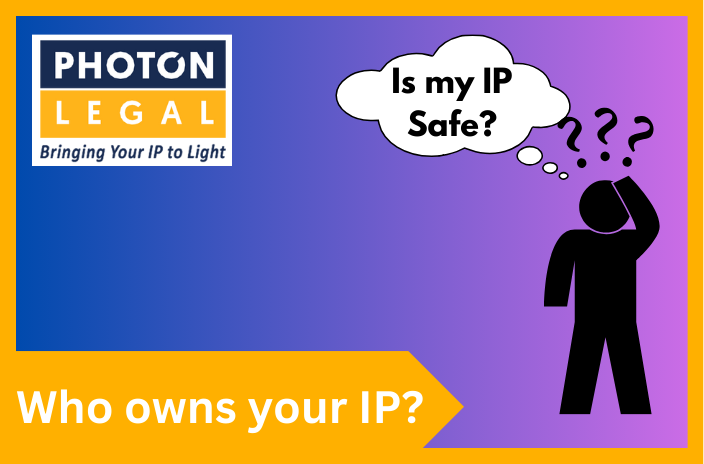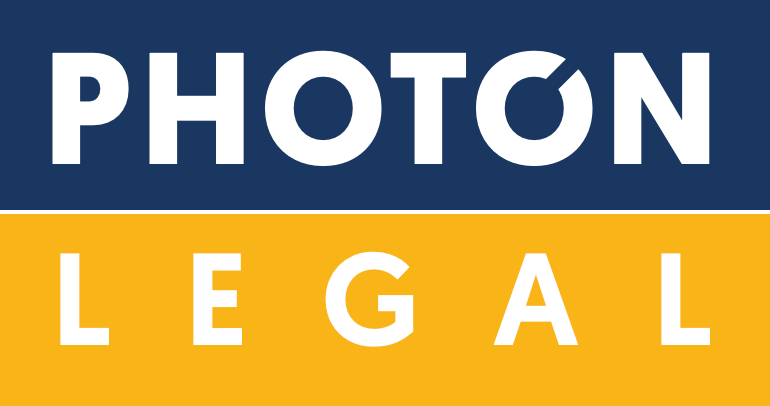
Introduction
The most important thing for every business is to ascertain its assets and ensure its ownership. Whether it’s the land of your factory or your car for transport, we all want the owner to be the person who owns it to avoid any complications in the future. One such important intangible asset is intellectual property. Over the years, the legal landscape of intellectual property has changed. With the rapid development of technology, it is very important to protect IP rights by having a fully grasped knowledge about its ownership, transferability, assignment, etc.
Intellectual property rights can be more protected if you are certain about the knowledge of its ownership! Do you know who the owner of intellectual property is or if the IP is assigned to anyone else? From the perspective of this blog, we shall introduce you to those who own intellectual property.
What is IP ?
Intellectual property is a legal term that refers to creations of the mind, such as inventions, literary and artistic works, and symbols, names, images, and designs used in commerce. Intellectual property is divided into two categories: industrial property, which includes inventions (patents and utility models), trademarks, industrial designs, and geographic indications of source; and copyright, which includes literary and artistic works such as novels, poems, plays, films, musical works, drawings, paintings, photographs, sculptures, and architectural designs.
Who owns IP ?
Intellectual property (IP) refers to creations of the mind, such as inventions, literary and artistic works, and symbols, names, and images used in commerce. There are several types of IP, including patents, copyrights, trademarks, and trade secrets, so the ownership varies according to the type of IP a person owns
For example, if you invent a new product, you are typically the owner of the patent for that invention. If you write a book or compose a song, you typically own the copyright for that work.
Let’s go through ownership of IP in detail:
Patents
Patents are granted for inventions that are new, useful, and non-obvious. A patent gives the owner the right to exclude others from making, using, or selling the invention for some time. Patents are typically owned by the inventor or the inventor’s employer, and they last for 20 years.
Copyrights
Copyrights are granted for original works of authorship, such as books, movies, and music. The owner has the exclusive right to reproduce, distribute, and perform the work. It is a type of intellectual property that protects original works of authorship, such as books, music, and films. It is automatically assigned to the creator of the work, and it generally lasts for the life of the author and 70 years after his death.
Trademarks
Trademarks are signs that distinguish the products or services of one company from those of another. A trademark can be a word, phrase, logo, or symbol. Trademarks are another type of intellectual property that protect words, phrases, logos, and other symbols that identify a brand. Trademarks are typically owned by the company that uses them, and they can last indefinitely as long as they are used in commerce.
Trade secrets
Trade secrets are information that is not generally known and that gives a company an advantage over its competitors. These secrets can include formulas, patterns, plans, devices, or processes. Secrets are another type of intellectual property that protects information that is not generally known and that has value because it is not generally known. Such secrets are typically owned by few people in the company that keep it a secret, and they can last indefinitely as long as they are kept secret.
Can a person transfer ownership of IP ?
Yes, ownership of an IP can be transferred by way of assignment. Did you know that IP assignment is one of the best ways to monetize your creation? Let us understand more about the assignment of IP in detail:
Assignment of intellectual property (IP) is the process by which an innovator transfers ownership of a creative work he or she made for a company, organization, or person to the entity that commissioned the work. Most of the time, this is done by having the inventor sign an agreement that gives the company, organization, or person who hired them all the rights and power over the intellectual property made during the job. This IP Assignment clause is usually part of a Confidentiality and Inventions Assignment Agreement (CIIAA) or a Proprietary Information and Inventions Assignment Agreement when it comes to employees (PIIAA).
Intellectual property can be assigned, or transferred, from one person or entity to another. An assignment must be in writing and signed by the owner of the intellectual property or their authorized representative. The assignment must state the nature of the intellectual property being assigned and the identity of the assignee. The assignment should also include any conditions or limitations of the assignment.
Who owns the IP in the workplace?
In Intellectual Property, there is a difference between the owner and the author. The author is the person who makes the IP, and the owner is the person who owns the IP that was made for him by someone else.
Employees are the most valuable part of any business or organization. When a company hires someone, it invests in him or her by giving him or her a salary and letting him or her use the company’s facilities, etc. In exchange, the company expects work, ideas, intelligence, etc. from its employees that will help the business grow. So, the employer owns everything that the employee makes while working for the company.
As a general rule of law, the employer owns the intellectual property created by the employee because the employer pays the employee in the form of a salary to do that work unless there is a specific agreement between the parties to the contrary. Unless the work made by an employee has nothing to do with the business of the company, the employer usually keeps the IP rights to all the work done by the employee, while working for the company.
Still, the employer is not given a set of rights. When deciding who owns IP in an employment dispute between an employer and an employee, there are a few key things to keep in mind.
Important clauses to be included in the employment agreement
1. Assignment clause
In the assignment provision of an employee’s intellectual property agreement, the employee assigns his/her inventions/discoveries/ideas to the employer and transfers genuine and complete ownership of the intellectual property. By this article, the employer may limit or expand the employee’s innovations, discoveries, ideas, or virtually any other creation.
2. Disclosure clause
A disclosure provision in an employee’s intellectual property agreement is structured such that the employee notifies the employer of the intellectual property generated by the assignment clause. In this section, everything must be disclosed clearly and completely.
3. Power of attorney clause
Finally, there is a section in which the employee appointed in the company appoints the corporation as their attorney-in-fact to execute the documents or conduct acts on their behalf. The advantage of this clause is that the business will have the authority to sign documents or execute other agreements on behalf of the employee to assign intellectual property rights to the business.
Typically, this clause is quite standard among businesses. Regardless of whether the employee is willing or able to assist, the power of attorney provision guarantees that the employer can register and handle the ownership rights without the employee’s participation.
Conclusion
In conclusion, intellectual property (IP) refers to creations of the mind, such as inventions, literary and artistic works, and symbols, names, and images used in commerce. There are several types of IP, including patents, copyrights, trademarks, and trade secrets. The owner of the IP has the exclusive right to use, sell, license, or otherwise exploit the IP. In general, the person or entity who created the IP is considered the owner. However, there are some exceptions to this rule, such as when the IP is created as part of job duties or in collaboration with others. It is important to properly establish and protect your ownership of IP to ensure that you can fully enjoy the benefits of your creations.


